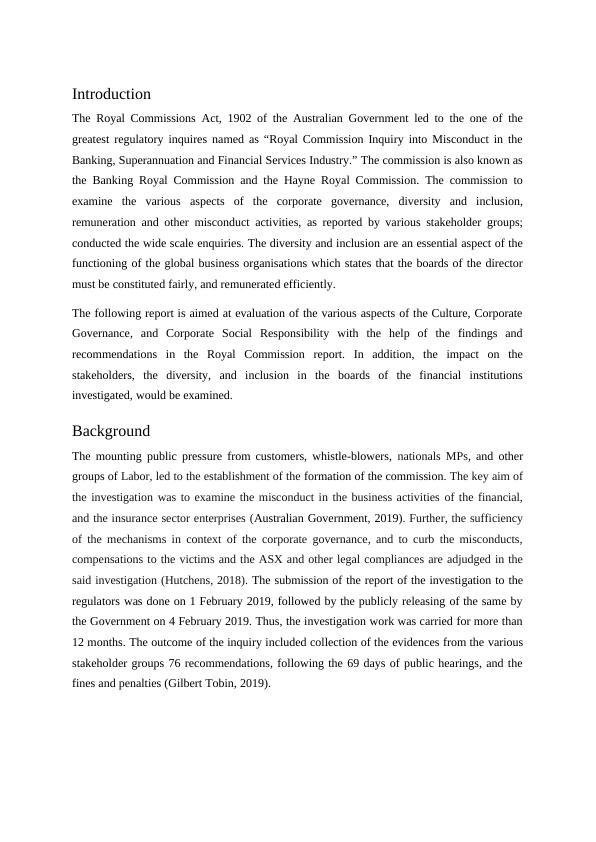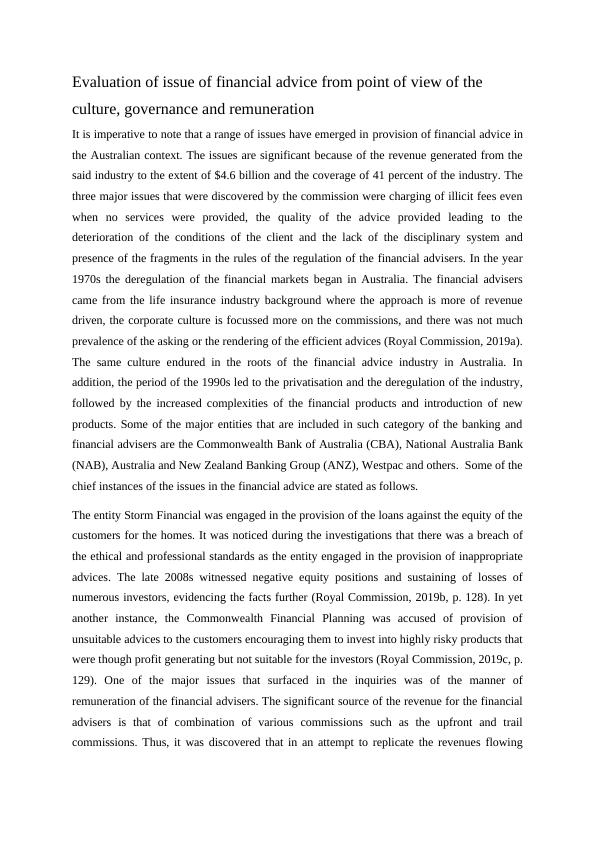Corporate Governance Ethics and Corporate Social Responsibility Assignment 2022
The report discusses the issue of 'Financial Advice' from a culture, governance, and remuneration point of view, considering the findings of the Royal Commission and conducting additional research. It includes an assessment of the effects on stakeholders, analysis of financial institutions' reporting, assessment of diversity and inclusion of boards, and an overall ethical analysis using Normative Theories of Ethics and sustainability approaches.
Added on 2022-10-04
Corporate Governance Ethics and Corporate Social Responsibility Assignment 2022
The report discusses the issue of 'Financial Advice' from a culture, governance, and remuneration point of view, considering the findings of the Royal Commission and conducting additional research. It includes an assessment of the effects on stakeholders, analysis of financial institutions' reporting, assessment of diversity and inclusion of boards, and an overall ethical analysis using Normative Theories of Ethics and sustainability approaches.
Added on 2022-10-04
End of preview
Want to access all the pages? Upload your documents or become a member.



